The Lab mix has one Labrador Retriever parent, and another parent from any other breed of dog. They include designer hybrids, accidental matings and muddled up mutts. And they all have a wonderful splash of Labrador in their character somewhere.
Contents
The best Lab mix breeds are of course a matter of opinion. As with any purebred dog, it depends entirely upon why you want a canine companion. If you want a small Lab mix as a family companion then getting one who is crossed with a smaller, calmer breed is a good choice. But if you want a dog for sports or hunting then going with a Labrador crossed with another working breed is a sensible move. If you want a dog to have a go at agility, then a Collie cross is a great place to start.
Lab mix dogs are often found in shelters or Lab rescue centers. Many will make wonderful family pets, and we’ll be looking at some of the more popular Labrador cross breeds. Whether you rescue an older dog or bring home a Lab mix puppy, we’ll help you decide whether a mix is right for you, and if so, which one!
What is My Lab Mixed With?
Labrador mix bred dogs can often look very different to either of their parents. And in some cases, if the parentage is unknown it is entirely possible that they have more than one breed in their genetic makeup. If you are rescuing an older dog, the only way to know with reasonable certainty where your mixed breed dog came from, is to order a DNA test. This will give you as many as three or four generations back, and give you a great idea what breeds went into your wonderful dog.
The Best Lab Mix Breeds
You’ll find information on the most popular Labrador mix breeds below, with tips and advice for those looking to buy one. If you have a Lab mix already, we’ll help you to work out which breed they were mixed with and what that might mean for their health and temperament.
Afador – Labrador Afghan Hound mix

An Afador is the name given to a Labrador Retriever / Afghan Hound cross. They are fairly rare, as Afghan hounds are not terribly numerous. Your Afador puppy is likely to grow to be fairly large, as both Afghan Hounds and Labradors are reasonably tall. Afghan’s are more leggy than their Lab friends, and have longer muzzles and very long straight coats.
You could therefore end up with a dog with medium to long fur, which will require regularly grooming.
Afghan temperaments tend to be more aloof than that of Labs, with less boisterous enthusiasm for everyone they meet. You can’t predict whether this trait would be transferred to your Afador puppy however.
Socialisation is an important factor as Afghan’s don’t tend to have the natural confidence of most Labs, and they are similarly likely to develop behavioral problems if left alone for long periods regularly. Just like Labs, Afghan’s need plenty of exercise and a constructive programme of positive training to become well behaved members of the family.
Basset Hound Lab mix

Another rare cross but one which has great appeal to some people, is the Bassador. This Labrador / Basset Hound cross can result in a dog which look in general like a short-legged, large eared Lab. They are on average around 14 inches tall as adults, with body proportions suiting a larger breed of dog and shortened legs.
Their disproportion leg to body length, which can result in mobility issues and arthritis especially due to the Basset’s fairly large weight to height ratio. The real risk here is that you could end up with a Labrador’s boisterousness and enthusiasm in a body that is ill-equipped to carry it around.
Working line Basset Hounds tend to be in far better shape than their show bred cousins, and this is where you should start your search if you have your heart set on a Bassador.
Border Collie Lab Mix

Border Collies are incredibly intelligent dogs, who work very well with their owner if properly trained. They are very much a ‘one person’ dog. Loyal to their families, and fairly indifferent to everyone else. They are quick to learn and can be taught a mind boggling range of activities through positive reinforcement training.
There are also a few different strains of Border Collie now, with the personalities of those from Show, Agility/Flyball and Working lines all differing quite a lot. The show dogs tend to be the least driven, although still high energy dogs that require a lot of stimulation.
Like Labs as puppies they can be very nippy. This can express quite strongly around children, as they attempt to herd them around. They are not generally therefore recommended to families with very young kids. They do however often make excellent pets when older for active, busy families who enjoy training and working together.
Labrador x Cavalier King Charles Spaniel
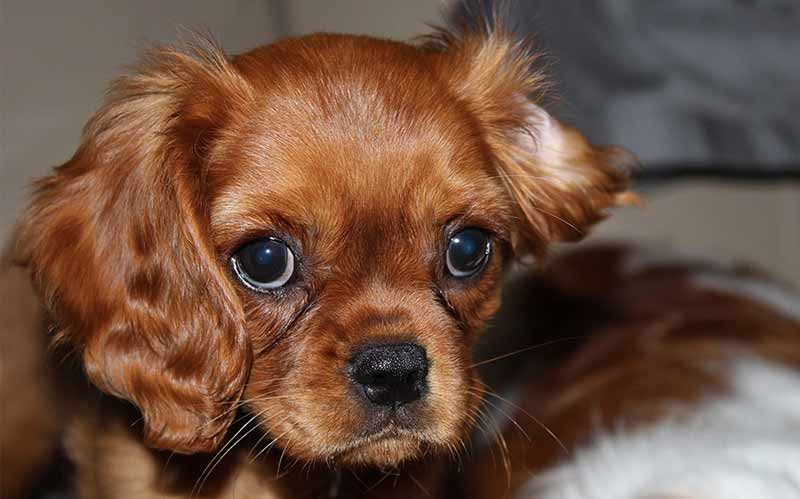
A Cavador is the name given to a cross between a Labrador Retriever and a Cavalier King Charles Spaniel. Cavalier King Charles Spaniels are without a doubt some of the friendliest little dogs in the world. They are charismatic, fun and loyal. They also have a fairly good average lifespan of 11 years.
However, there are a couple of big, scary health problems associated with large numbers of this breed, so be very careful and do a lot of research if you are thinking of bringing one into your home.
Health problems impacting a vast quantity of these little dogs include mitral valve disease, a heart problem which causes early death, and syringomyelia. This is a neurological problem caused by the size and shape of their skulls, not allowing their brain and brain stem to be properly accommodated.
Golden Retriever Lab Mix
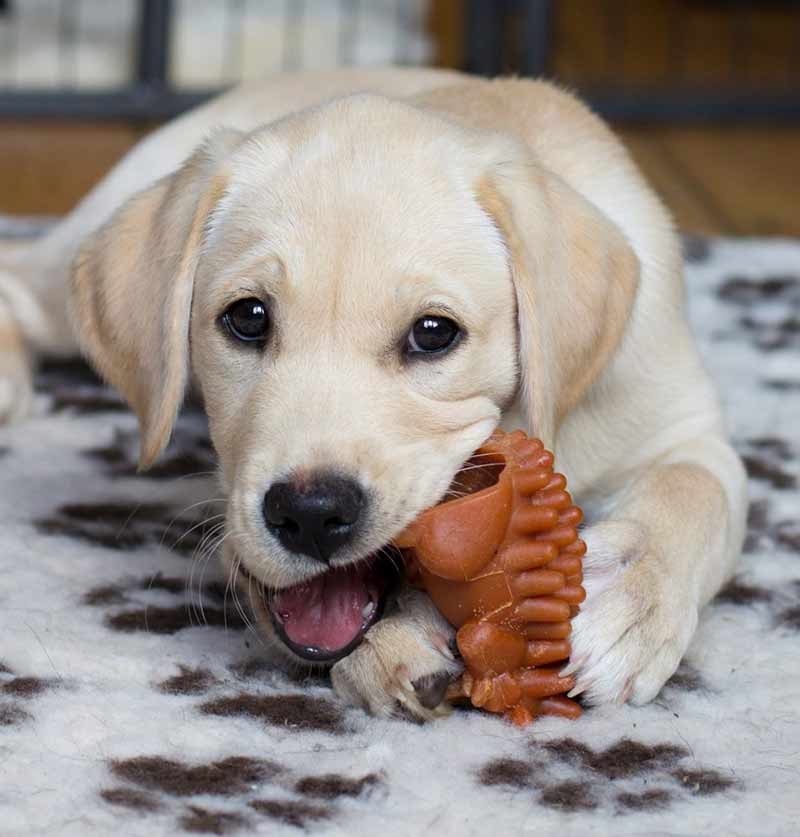
Often referred to as the Goldador is the incredibly successful cross between a Lab and a Golden Retriever. Two very popular breeds of gundog with a lot of similarities, this is one of the cross breeds where can be fairly confident of the type of Lab mix you will be getting when you bring home your puppy.
Goldadors are very popular seeing eye dogs. They are well known for being intelligent, fast learners and very co-operative with their handlers. Like their Golden Retriever and Labrador parents, they tend to have very friendly temperaments and love spending time with their human family.
Golden Retrievers are similarly sized dogs to Labradors, but with a far longer and wavier coat. Most Goldadors seem to have shorter fur more like the Lab parent, but this is not guaranteed.
Labernese
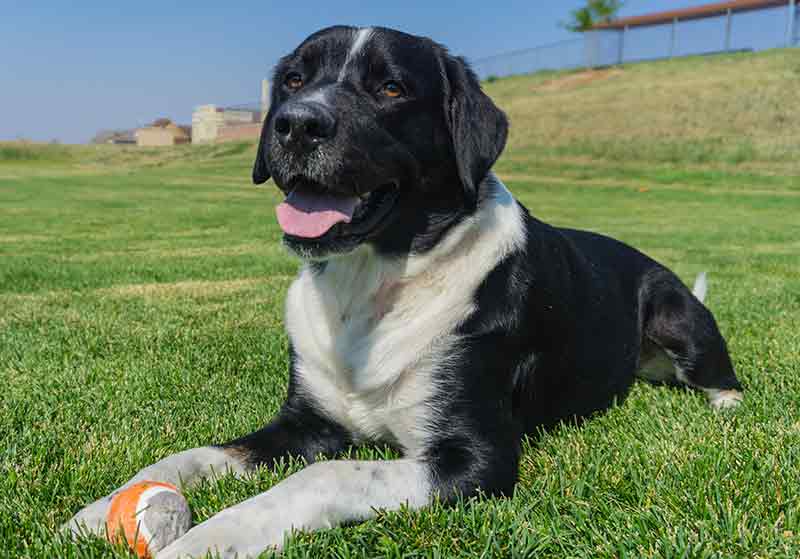
Labernese is the name given to a cross between a Labrador Retriever and a Bernese Mountain Dog. Bernese Mountain Dogs tend to be fairly calm and aloof as adults, and require a lot of dedication to socialisation when they are young due to potential nervousness around strangers and guarding tendencies. Due to their size, they are not really recommended for homes with young children or frail adults.
Bernese Mountain Dogs are very large, growing up to 28 inches tall and weigh up to 110 pounds. They also have a long coat, which requires a lot of grooming to keep in a good condition. Unfortunately like many extra large breeds, Bernese Mountain Dogs do not have very long life expectancies, averaging around 8 years long. When looking at longevity size is a big factor, and giant breed dogs regardless of whether they are mix bred or not will have shorter lifespans. You could therefore expect to see your puppy potential live fewer years than the average purebred Lab.
They are utterly beautiful dogs, and if well managed can make wonderful companions.
Labmaraner
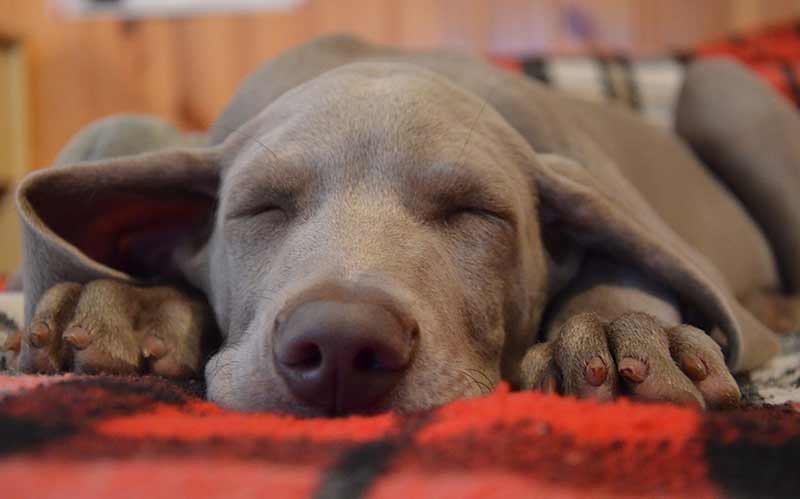
The Weimaraner is a beautiful dog, and an intelligent one too. Like all members of the gun dog group he has been bred with co-operative working in mind. Although he tends to be slightly less people focussed in general than your average Lab.
This means that they are not as obsessed with greeting everyone when you take them for a walk. However, they can also be a little harder to engage in the training process and in some cases be even more driven than a Labrador.
Like Labs, Weimaraners can also be prone to separation anxiety when left alone for long periods.
Labradoodle
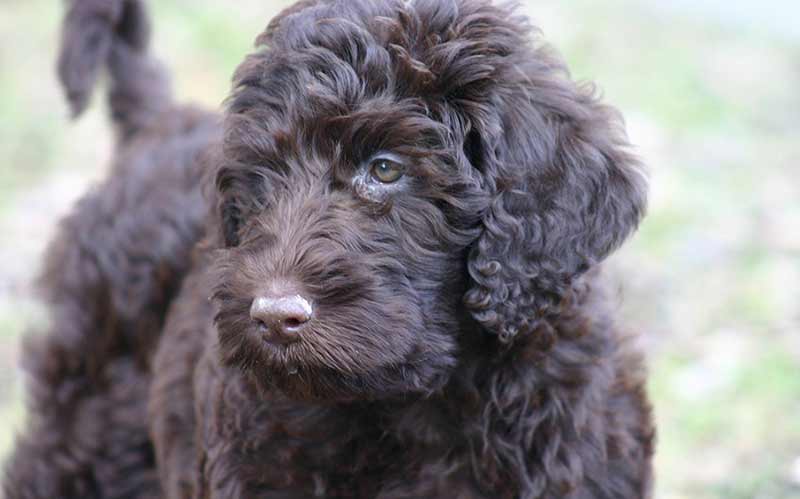
Labradoodles are the most popular Labrador Retriever designer dog breed at the moment. We are currently putting together a full article just on them, but in the meantime here’s a brief rundown! A Labradoodle will not necessarily be a non-shedding dog, and may require some extreme grooming or very regular visits to the poodle parlour in order to not become matted.
Pitbull Lab Mix
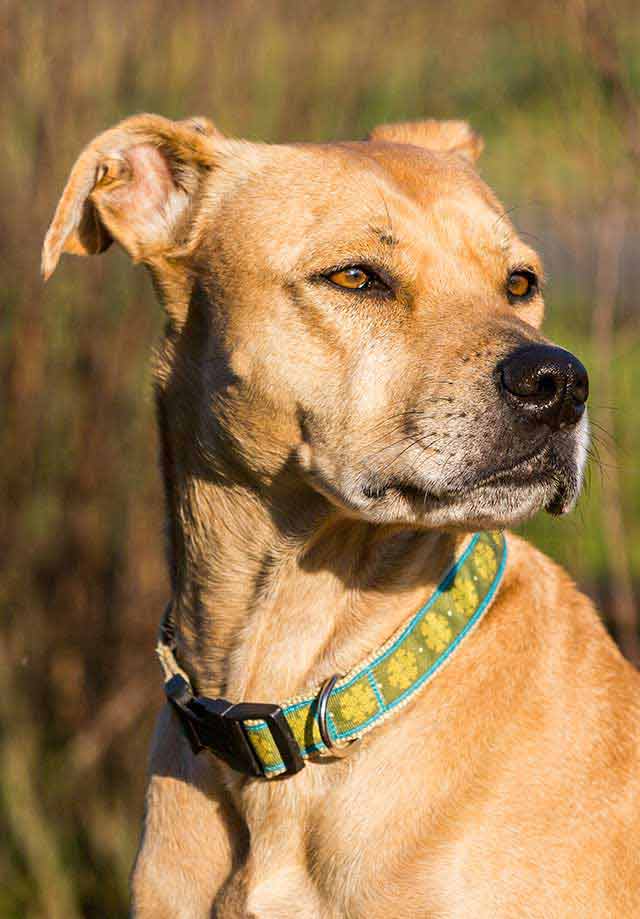
The Pitbull Lab mix should be a great family dog, full of energy, with a short, easy care coat. He’ll likely have a heavier head than a purebred Lab and may have partially upright ears. He’ll be strong too, and bouncy when young.
Rottador or Labrottie
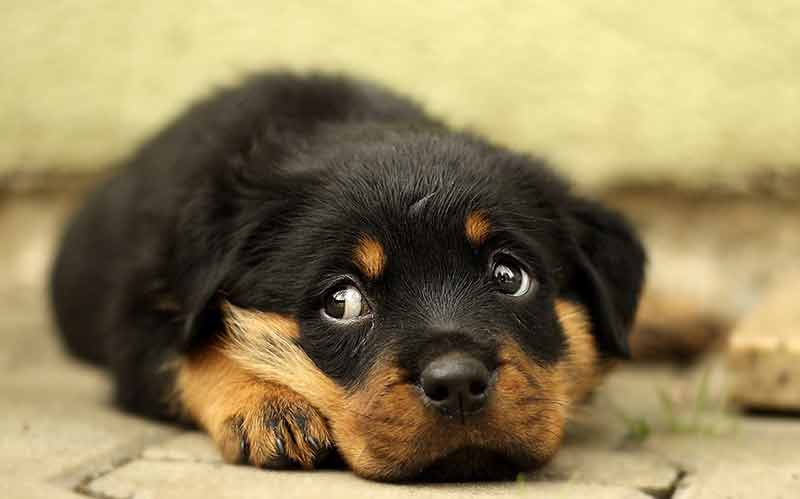
Rottweilers crossed with Labradors are known as Labrotties. Or Rottadors. And they can be incredibly beautiful and dedicated companions to their families. Rottweilers can be up to around 27 inches tall, with big heads, deep chests and well muscled bodies. They are powerful dogs and need commitment to positive training from day one from their families in order to understand how to behave in their homes.
Rottweiler temperament is also quite different to that of your average Labrador Retriever. There is no way of knowing which of his parents your Labrottie will take after. Rottweilers are a guarding breed. Extremely loyal to their family, but known to be wary of strangers and unpredictable around children if improperly socialised and managed.
Your Labrottie puppy must be very well socialised, just as you would with a pure guarding breed dog. Make sure he has regular positive contact with people of every age, and is familiar with things like beards, hats and unusual items of clothing.
Springador

Springer Spaniels crossed with Labs are often referred to as Springadors. They can make fabulous pets or working dogs, but can have the extremes of both breeds. They are not for the inexperienced or inactive owner. Springers are very lively dogs with an incredibly high prey and hunting drive. They benefit from positive reinforcement training from an early age.
In general Springers have great temperaments. However, there are some working lines which have nervous aggression problems and fixations on light chasing. Make sure that you meet the Springer parent to ensure that they are confident and not agitated. English Springer Spaniels tend to be smaller and lighter than Labs, with a longer coat. Springadors often have shorter coats, and can look a lot like a slightly shaggy black Lab with a few white markings.
Lab Mix Temperament

When you buy a mixed breed dog, their temperament will be a product of their varying lineage. They could end up with any mixture of the two lines temperaments, or something completely different.
Make sure to meet both parents to ensure that they are confident, friendly characters. If both lines are happy, loving dogs then the chances are good that your puppy will be the same.
Lab Mix Size
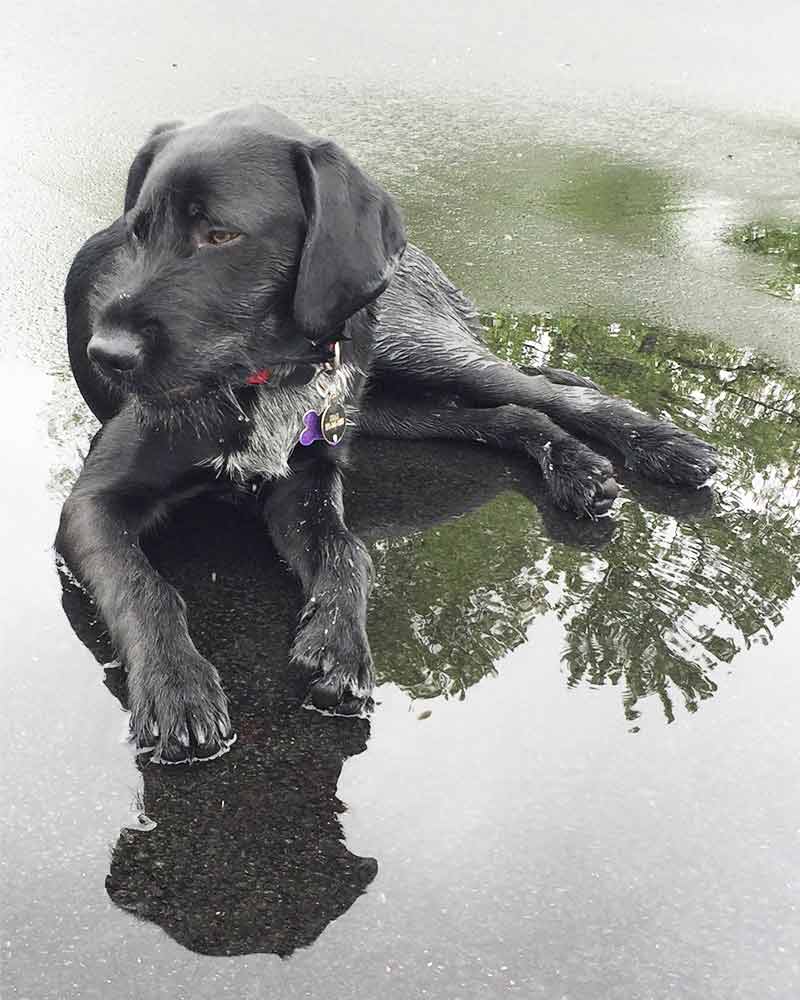
If your Labrador is a known cross, then you can make an educated guess that he could be anywhere between the average sizes for those breeds. However, it not always the case.
And with a Labrador mixed with unknown other dogs, then they really could be any size at all. The Labrador element to their genetics does not limit their growth. Nor do they mean that they will definitely have any specific height to them.
There will potentially be huge variation even within the litter. I grew up next door to a family who had two Labrador x Terriers from the same litter. One looked exactly like a Labrador in every way, except she had very short legs. The other was Labrador height but with a totally different shape. If size matters to you, then a purebred puppy or dog over 18 months old might be a better choice.
Lab Mix Health
Mix breed dogs can still be susceptible to the diseases carried by their parents. Especially if those diseases are common in both breeds. So it’s important to find a good breeder that has health tested the parents of your puppy.
The Labrador parent should have a clear eye test of less than a year old. They should be PRA clear, and have a lower than average hip score. For full health testing for Labs check out this article. The other parent may also need a clear eye test, and a good hip score.
The most important thing is to pick a puppy whose parents have both had all of the health tests relevant to their own breed. And whose personalities you would be happy to see replicated in your pup. Alternatively, look for a rescue dog that you have met and fallen in love with yourself.

The Labrador Site Founder
Pippa Mattinson is the best selling author of The Happy Puppy Handbook, the Labrador Handbook, Choosing The Perfect Puppy, and Total Recall.
She is also the founder of the Gundog Trust and the Dogsnet Online Training Program
Pippa's online training courses were launched in 2019 and you can find the latest course dates on the Dogsnet website

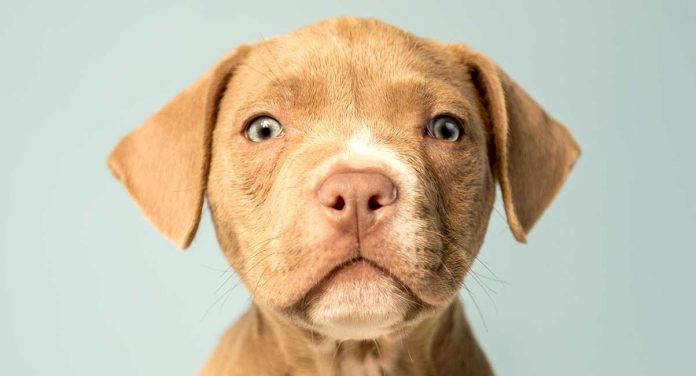



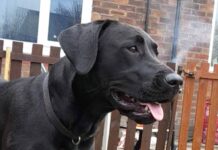
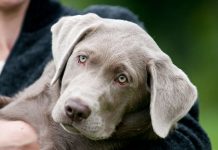
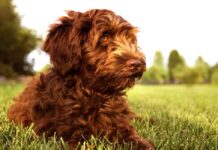
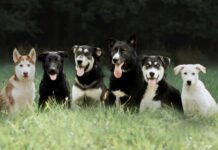
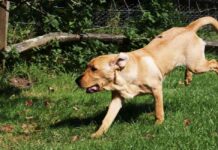
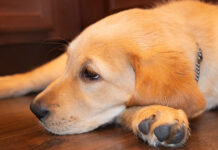








My lil male pup is Lab x Lurcher, would anyone like to guess his adult weight? I have photos of both parents.
I had a chocolate lab/Doberman mix. Cheyenne was the absolute best dog I have ever had. His temper was spot on. Calm and alert, kind and protective without aggression. He could catch a ball like no dog I’ve ever seen. He would watch it fly to him with hawk eyes and bring it back lab happy.
Currently looking at a lab mix rescue that is a female 6 months old and currently weights 26 lbs and wondering how big she may get as we don’t know her parentage. Her Paws look small and I am guessing around 40 lbs but does anyone of thoughts?
What’s the best mix with lab that has the least health issues ?
We adopted a pup from Arkansas. we are in MD. We know it has lab as it looks like a lab. Our trainer seems to think it is a Lab/saluki mix. He looks like a mini lab. When looking at pics of the mixed breed, you can not tell our dog from the pics. Any information on this mix breed would be very helpful. We do have him in training. Loves to learn, but has a will of his own. Loves to lap sit. LOVES TO RUN and RUN and RUN. Fast, turns on a dime. He is not to be trusted off leash. Fearful of other dogs and people and comes across as ‘mean’ but he isn’t. He spurs up in a mohawk when he sees other dogs. We are working on this in training.
With all that said, again ANY HELP would be helpful for us as we continue to train our now 18 month old. Thank you soooo much.
Hello. I’m in search of a White Lab / Rough Collie ( Lassie) mix. Not sure they have a name but I had one 25
years ago and he was the smartest, most friendly dog I have ever come across. He would ride in the front seat with the dog catcher in my town when he was ” out ” and be dropped off at my house at the end of the day while all the other dogs were in the back ! He almost spoke English by the time he was two or three years old. I would be thrilled if I could find one like him. Thank you
I have a 4 year old lab mix. His mother was a black lab/newfoundland mix and his dad was a golden retriever. He’s very strong and loving. Can I get an estimate on the breeds life span.
So yesterday I found this beautiful pure black puppy with a little white on his chest,someone decided it would be a good idea to throw him out at the end of my road. I believe he’s still a pup, he has long thick black hair, with a “fan” tail and pointed ears. Me and my boyfriend both believe he’s mixed with black lab Because he has the spots on his tongue. Do you guys have any idea what else he maybe mixed with??
If his spots on his tongue are blueish purple, he is probably mixed with a chow. I had one and they are wonderful fur babies. A black Lab and chow mix are beautiful dogs with great personalities and very loving.l would love to see a picture of him.
I have a Lab mix dog,2 yrs old. Her mom was a purebred black Lab. I had DNA testing on her — the father was half golden retriever & a quarter Siberian Husky, the rest was a mish-mash of large breeds. She’s wonderful, very friendly and very trainable. She basically looks like an off breed chocolate Lab. Her fur is shorter and shinier than a Lab but sheds just as much. She has a small amount of white on her chin and some toes, but best of all she has 1 ice blue eye and one brown one. She’s very muscular and strong. She’s wonderful
I’m fortunate to have, for the 2nd time in my life, a half Lab, half Old English Sheepdog. These are incredibly bright, devoted, loving dogs. They are very much tender hearted members of the family & expect to be included as such. At times, the Old English stubborness shows itself, but they so want to please, so it doesn’t last. They are cuddlers too, which is tough with a 100 pound boy, and also playful. He loves to jump on my bed and play wrestle with me…very gently. EVERYONE who has ever met him, has fallen in love with him!
My pound pickup lab mix looks like a smaller chocolate lab w/ viszla or Pharaoh Hound because the way his ears are set, longer neck.
And he’s a reddish brown. So far as I can tell he doesn’t shed. We ordered the DNA test so hopefully that will answer some questions.
I have a Lab Mastif Chow, Lastifow. Mister Wilson is calm, but high pitches scare him. He is good alone or with anyone. He was socialized extensively as a baby. With any dog, it is half about how they are raised. He has genetic, floating molars, tumors (mastif), knee issue, TPLO surgery at 8yrs. He likes to get on the wall and climb. Bad doggie neighbors, $4k later, he cant be left alone in his own back yard. 2 bouts with Valley Fever. But I LOVE HIM! For any parent, puppy health insurance, a lot cheaper then anything.
i don t think my lab is cross breed because he is full black,Brown eyes,has normal ears like othcer poor lab (but he is just 3-4 months) so can someone help me i rly wat to know what my dog breed is
You might find this article of interest: https://www.thelabradorsite.com/is-my-dog-purebred/
Sheltie or a Rough Collie. They are very intelligent. I hope you found one 👍
I have a black lab mix
believe with miniature greyhound
14 now
How long do they live
I have a 6 month old lab x bullarab a very excitable dog who Ican’t let near people as he jumps on everyone, has a lot of energy takes a lot to tire him out but when it just him and I he is a big cuddle baby
Love it
I’m having a problem to insure my labrador cross ridgeback . Wear it says breed I put crossbreed but it come back labrador retriever. Wen speaking to insurance person they said it’s wrong so don’t no way to put
Our Labrador/Red Setter cross has the best characteristics of both breeds.
She is 16 so not a ‘designer dog’ just a happy match and a much loved family member
I am owned by a beautiful Yellow Lab x Irish Setter mix. He looks like the Red Lab.
Anyone heard of a Lab and Irish Setter mix. They look like the Red Lab. Good looking dog.
Do you have any information for a Bullador? it is a Bulldog/Lab mix. Thanks
As a happy owner of a borador, I can certainly attest to their high energy and terrific agility.
You omitted another popular lab mix–labrador and Vizsla. Our rescued chocolate lab/vizsla is the gentlest dog you’ll ever meet, but his motor is constantly running!
I am interested in a Labrala (Lab/Vizsla mix) but unable to locate one. Can you help me out?
I have a pitbull-lab mix, she is the sweetest, loves to play and give kisses.
Our Black Lab x Long Haired German Shepherd is beautiful and a constant delight.
i had the same dog for 12 great years . very well behaved, obedient, good natured loved cats, kids, and life. best dog we ever rescued. was 125 lbs of pure love miss him everyday.
I got my Lab/German Shepherd mix as a rescue. He’s the cutest, sweetest dog I could ever wish for. I have to admit, he has everyone in my household wrapped around his paw! 🙂 I can’t imagine my home without him.
I believe that my rescue is black lab and long haired German shepherd. I know his mother was full black lab. I think his father was German shepherd beacause his sister definitely had German shepherd and my dog also has the stance of a German shepherd. He is about 85 lbs with black long coat white star on chest. He makes everyone feel like they are so loved and special. He was dumped along with his mother and all his siblings. I took his mom and him because they came to me. A neighbor rescued 2 Also. Don’t know where the rest went :(. He is the best! I found a good home for his mom. She was a sweetheart also.
Another mix is Labrador and Australian Shepard, aka sheprador. Ours is about 9 yrs old and is such a snuggler.
Do you have any information on a Lab and Pitbull mix?
I am wondering myself. I am trying to find information on mine and can’t.
Golador..lab and golden retriever
Thanks, I can’t believe I forgot this wonderful mix! Lovely dogs, and they are very popular as guide dogs too. I will add them into the article 🙂
You left out boxadors. Lab/boxer cross. Have our 2nd one and they are such amazing dogs